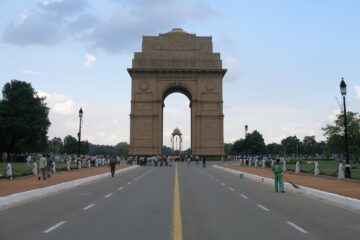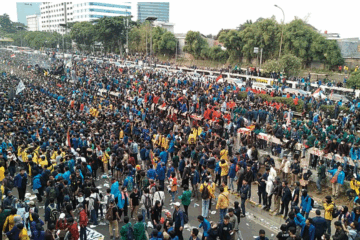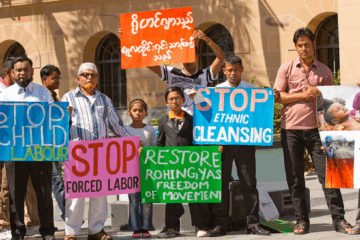
Controversial citizenship laws
Last month, the Indian government under Prime Minister Narendra Modi passed the Citizenship Amendment Act (CAA), a new set of laws that would allow minority religious groups from neighbouring Afghanistan, Bangladesh and Pakistan to more easily gain Indian citizenship. While at first glance these policies seem welcoming to targeted minorities, they notably exclude Muslims, raising questions about their true motivations.
In addition, the Modi government intends to create a National Register of Citizens (NRC). His administration claims that this is an effort to weed out illegal immigrants, but any such attempt should be questioned given the history of such registries of weaponizing citizenship to target religious or ethnic minorities.
According to Vox, these policies will mean that “Hindus, Sikhs, Buddhists, Jains, Parsis, and Christians who came to India from Afghanistan, Bangladesh, and Pakistan won’t be treated as illegal. They’ll have a clear path to citizenship,” but Muslim citizens are not extended this same consideration. In Assam, a province bordering Bangladesh, more than two million citizens, largely Muslim, have already been left off the registry, meaning that they do not count in the eyes of the state as Indian citizens. If unable to produce the necessary documents, these people, many of whom have lived in India for generations, could be labelled illegal immigrants, left stateless, or placed in detention camps.
Protests in Assam
The combination of these laws have sparked student-led protests throughout the country, notably in Assam. In this region, which borders Bangladesh, the CAA has stoked ethnic conflict, with residents interpreting the new law as an attempt to populate the area with non-Muslim Bengalis, a group with whom they have long had contentious, and at times, violent relations. Their fears include deportation and the loss of their culture and communities.
Hindu nationalism, growing tensions
In another context, such laws might be read more forgivingly, but it is difficult to presume innocence from an establishment that has actively encouraged a period of growing agitation between Hindu citizens and the Muslim minority. Modi’s Bharatiya Janata Party (BJP), the largest and most influential in India, has long advanced a Hindu nationalist platform. Modi won his second term vigorously promoting this ideology, and its effects are now being felt predominantly by India’s Muslim populations. In March of 2019, Michelle Bachelet, the U.N. High Commissioner for Human Rights, said that the U.N. has “[received from India] reports that indicate increasing harassment and targeting of minorities – in particular, Muslims and people from historically disadvantaged backgrounds”.
Such targeting includes the lynching of a number of Muslim men in the Uttar Pradesh province who were found slaughtering cows – in many Islamic countries, a traditional ritual during Eid – by mobs of Hindu citizens, for whom the same animal is sacred. The Indian Supreme Court also approved the building of a Hindu temple on the former grounds of a Mosque in Ayodhya which had been destroyed by Hindu nationalists. The oppression of Islam in India is thus bigger than individual-level violence or xenophobia. It is an institutional process being legitimized in the nation’s legislative bodies and highest levels of its judiciary branch. These events are only the most recent in a checkered history between Hindus and Muslims, but considering their timing, the citizenship laws begin to take the shape of active discrimination.
The state against the constitution
There is not only a question of discrimination on the table, but one of legality. India, though dominated by a large Hindu majority, has always been a richly diverse nation with a plurality of faiths. Protection of this diversity is enshrined in the nation’s constitution, which was amended in 1976 to redefine India as a formally secular state.. Thus, many citizens and observers are concerned that the CAA is not only prejudiced toward Muslims, but stands in direct opposition to the constitution, undermining the principles of tolerance and religious freedom for which the nation has claimed to stand.
Democracy at stake
Every country must, at one time or another, address the question of nationhood. Who belongs to “us”? Whose equality do we recognize, whose rights do we protect? And, by necessity, who are we willing to exclude? These questions are deliberated at multiple points in a state’s history. Sometimes this process is an organic one, but the ability to harness nationalist sentiments has always been a valuable currency, and national questions today are rarely a neutral subject, instead they are shaped and exploited for political gain. It is of course easier to garner the support of a populace when they feel united against a common enemy, even if that enemy comes from a subset of their own nation, and especially if that enemy is smaller, weaker, easier expelled from their borders. From Johnson’s United Kingdom to Modi’s India, fear of refugees, terrorism, or economic recession is being stoked by populist leaders at the expense of our most vulnerable groups.
In India, it is disappointing to see these questions pushed by the machinations of a political party with a nationalist agenda, and not the people whom they are intended to represent. It is naïve to expect perfect harmony from two groups that have conflicted so many times in the past, but is it too much to hope that the leaders of the world’s largest democracy would uphold democratic values, and all that they entail?
Edited by Ghayas Osseiran
i. Swati Gupta, Omar Khan, and Helen Regan, “India passes controversial citizenship bill that excludes Muslims”, CNN, December 17, 2019, https://www.cnn.com/2019/12/11/asia/india-citizenship-amendment-bill-intl-hnk/index.html?fbclid=IwAR0vI1TcP6VP1RpUym2RdOC1KsS9CJ9yvzjefn3VpBcrlrr_lWR2jQ6zXLA
ii. Swati Gupta, Omar Khan, and Helen Regan, “India passes controversial citizenship bill that excludes Muslims”.
iii. Sigal Samuel, “India passes a citizenship bill that excludes Muslims”, Vox, December 12, 2019, https://www.vox.com/future-perfect/2019/12/12/21010975/india-muslim-citizenship-bill-national-register
iv. Sigal Samuel, “India passes a citizenship bill that excludes Muslims”.
v. Aditi Malik, Shivaji Mukherjee and Ajay Verghese, “In India, thousands are protesting the new citizenship law. Here are 4 things to know”, The Washington Post, December 31, 2019, https://www.washingtonpost.com/politics/2019/12/31/india-thousands-are-protesting-new-citizenship-law-here-are-things-know/
vi. Soumya Shankar, “India’s citizenship law, in tandem with national registry, could make BJP’s discriminatory targeting of Muslims easier”, The Intercept, January 30, 2020, https://theintercept.com/2020/01/30/india-citizenship-act-caa-nrc-assam/?fbclid=IwAR2wLVTOerm6bFBFuG86ChmdoHaKMakNkc2lOkUNijqaIXjJeoULGBEvEjY
vii. “Modi and B.J.P. Make History in India. Gandhi Concedes”, The New York Times, May 22 May, 2019, https://www.nytimes.com/2019/05/22/world/asia/india-election-results.html.
viii. “India’s Muslims fear for their future under Narendra Modi”, BBC, May 16, 2019, https://www.bbc.com/news/world-asia-india-48278441 .
ix. Iain Marlow, “Cow Vigilantes in India Killed at Least 44 People, Report Finds”, Bloomberg, February 20 2019, https://www.bloomberg.com/news/articles/2019-02-20/cow-vigilantes-in-india-killed-at-least-44-people-report-finds?fbclid=IwAR3xSEokRSmeiqRISOyeYNlhpAxVFubio_vGpcERVL032yDGnXa4nbHxIMc .
x. “Sanctity of the Cow”, Encyclopedia Brittanica., February 5, 2018, https://www.britannica.com/topic/sanctity-of-the-cow.
xi. Hannah Ellis-Peterson, “Ayodhya: India’s top court gives Hindus site claimed by Muslims”, The Guardian, November 9, 2019, https://www.theguardian.com/world/2019/nov/09/ayodhya-verdict-hindus-win-possession-of-site-disputed-by-muslims.
xii. Christophe Jaffrelot, “The Fate of Secularism in India”, 4 April 2019, Carnegie Endowment for International Peace, April 4, 2019, https://carnegieendowment.org/2019/04/04/fate-of-secularism-in-india-pub-78689?fbclid=IwAR0vI1TcP6VP1RpUym2RdOC1KsS9CJ9yvzjefn3VpBcrlrr_lWR2jQ6zXLA.
xiii. Soumya Shankar, “India’s citizenship law, in tandem with national registry, could make BJP’s discriminatory targeting of Muslims easier”.




